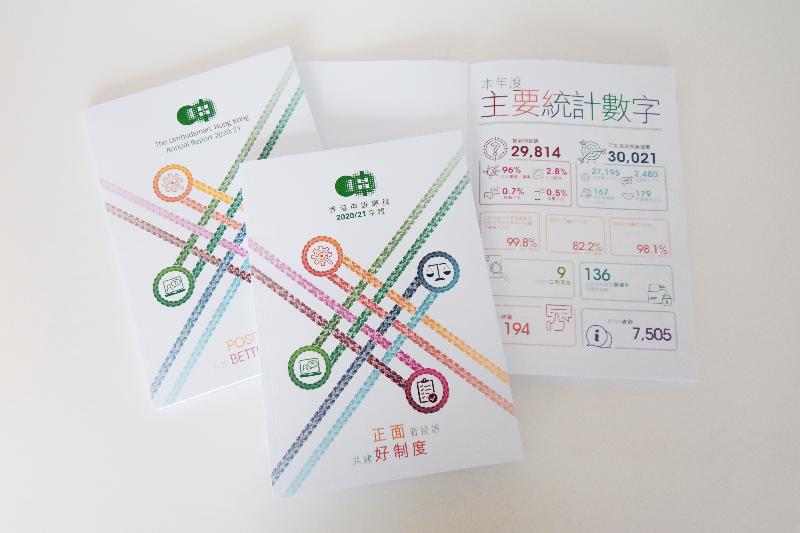LCQ15: Support for Hong Kong people suffering from illnesses on the Mainland
Following is a question by the Hon Leung Che-cheung and a written reply by the Secretary for Food and Health, Professor Sophia Chan, in the Legislative Council today (July 7):
Question:
Given that some Hong Kong people in Guangdong Province have been, due to the epidemic, unable to return to Hong Kong as usual for attending follow-up consultations at the outpatient clinics of the Hospital Authority (HA), the Government launched a Special Support Scheme in November last year, under which the University of Hong Kong-Shenzhen Hospital (HKU Shenzhen Hospital) has been commissioned to provide subsidised follow-up consultation services for chronic disease patients who are in Guangdong Province and have made appointments for attending follow-up consultations at designated specialist outpatient clinics or general outpatient clinics of the HA, until July 31 this year or the lapse of the quarantine arrangements in Hong Kong and on the Mainland (whichever is earlier). However, as psychiatric specialist outpatient services are not included in the Special Support Scheme, coupled with the Mainland authorities' prohibition of posting psychiatric medications into the Mainland, it is difficult for the patients concerned to receive diagnosis and treatment and obtain the relevant medications on the Mainland. In this connection, will the Government inform this Council:
(1) in respect of the HA patients in Guangdong Province who are in stable conditions and need to take certain psychiatric medications on a long-term basis, whether the Government will deliver through official channels the psychiatric medications regularly prescribed for them by the HA doctors to the HKU Shenzhen Hospital for collection and use by such patients; if so, of the detailed arrangements; if not, the reasons for that;
(2) of the number of person-times of Hong Kong people who have been diagnosed and treated under the Special Support Scheme since its launch, with a breakdown by specialist outpatient and general outpatient services;
(3) given that there is no definite time for the resumption of normal traveller clearance between Hong Kong and the Mainland, whether the Government will extend the Special Support Scheme and expand its coverage to include outpatient consultation services of more specialties (such as psychiatry); if so, of the details; if not, the reasons for that; and
(4) whether the Government will, in the long run, regularise the Special Support Scheme for the convenience of those Hong Kong people residing on the Mainland?
Reply:
President,
My reply to the various parts of the question raised by the Hon Leung Che-cheung is as follows:
(1) and (2) On November 10, 2020, the Government launched a Special Support Scheme under which the University of Hong Kong-Shenzhen Hospital (HKU-SZH) has been appointed to provide subsidised follow-up consultation services for patients with scheduled appointments at designated specialist outpatient clinics or general outpatient clinics under the Hospital Authority (HA). As at late June 2021, the HKU-SZH received and processed around 16 100 applications and scheduled about 22 800 medical appointments for eligible patients, among which about 19 100 medical consultations had been conducted. Among the medical appointments scheduled, around 14 860 appointments were made with the Family Medicine Clinics (Chronic Diseases), while about 7 960 appointments were made with other specialist clinics.
The Government introduced the special scheme on delivering prescription medications to Hong Kong people in Guangdong and Fujian with urgent need for medications in February 2020 as a temporary measure to address the needs of Hong Kong residents living in the Mainland who might be running out of prescription medications. As the Government has introduced the aforementioned Special Support Scheme and the "Return2hk" scheme in November 2020, the special scheme to deliver prescription medications has ceased in December 2020. For the sake of their health, patients are urged to consult a doctor as soon as possible if they have not attended medical consultations for a long time.
(3) Given that the compulsory quarantine measures in both Hong Kong and the Mainland are not yet relaxed completely, the Government has extended the Special Support Scheme to November 9 this year to ensure that the health conditions of patients concerned are effectively monitored and taken care of in a continued and co-ordinated manner. Eligible persons may receive medical consultations at the HKU-SZH before November 9 this year or until the lapse of the quarantine requirement in both Hong Kong and the Mainland (whichever is earlier). The scope of service and subsidy under the Special Support Scheme remain unchanged.
While the Special Support Scheme aims to provide an alternative choice of medical services for patients under the epidemic, patients may also return to Hong Kong for follow-up consultation at the HA clinics if circumstances permit. As for the proposal of expanding the coverage to include outpatient service in psychiatry under the Special Support Scheme, such proposal would not be feasible since psychiatric specialist outpatient service is currently not available at the HKU-SZH.
(4) In examining public-private partnership involving cross-boundary healthcare services, the Government and the HA will carefully consider relevant factors including potential complexity of the programmes, differences in healthcare systems between the Mainland and Hong Kong, as well as the capacity and readiness of relevant healthcare institutions. Taking into account the experience gained in the Special Support Scheme, the Government and the HA will continue to communicate with the relevant stakeholders (including members of the public, patient groups and healthcare institutions) to explore the feasibility of introducing partnership for cross-boundary healthcare services in future.
